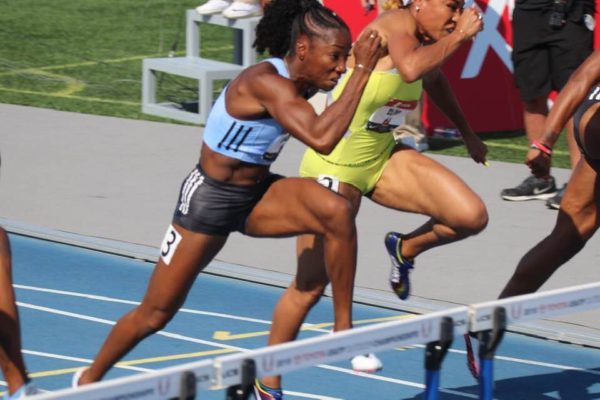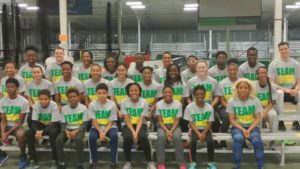September 16, 2019
In the video below, a 400 hurdler I’m working with is learning how to alternate lead legs for the first time in his life. We started off with some easy three-stepping drills, followed by some two-stepping alternating drills, followed by four-stepping alternating drills. By the end of the session, as you’ll see, he was really getting the hang of it. The hurdles were well below race height, but we’ll work our way up to race height gradually.
I feel that the ability to alternate is a very useful tool for the 400 hurdler to have in his or her toolbox. Many hurdlers who learn how to hurdle by running the sprint hurdles (100/110m) don’t develop the ability to alternate lead legs because it isn’t a relevant skill in that event. But for hurdlers who specialize in the long hurdles, or for whom the long hurdles is the better of their two hurdling events, learning how to alternate is worth the time it takes. And if done correctly– taking the necessary steps to gradually build confidence in the weaker lead leg–then it can be learned fairly easily–more easily than you might think. The hard part is getting to a point where you trust the leg when moving at full speed in a race. Ideally, you want to get to a point where the outside observer can’t even tell which leg is your stronger lead leg. Here are the steps I take, drill-wise, to get a hurdler to that point:

